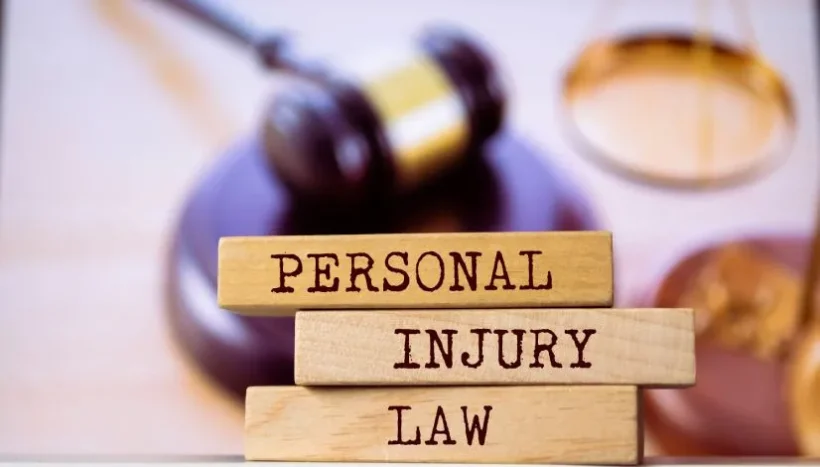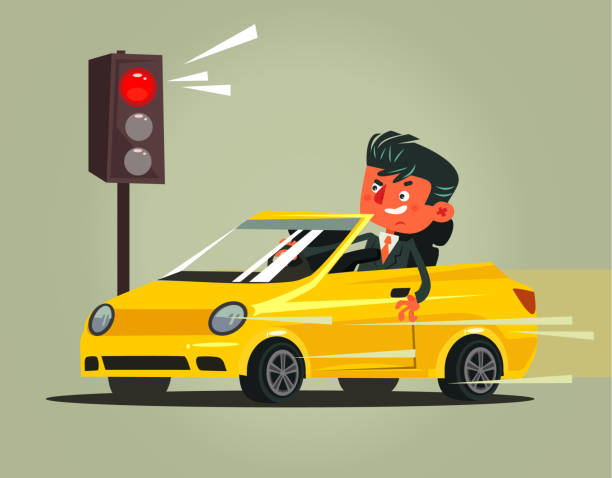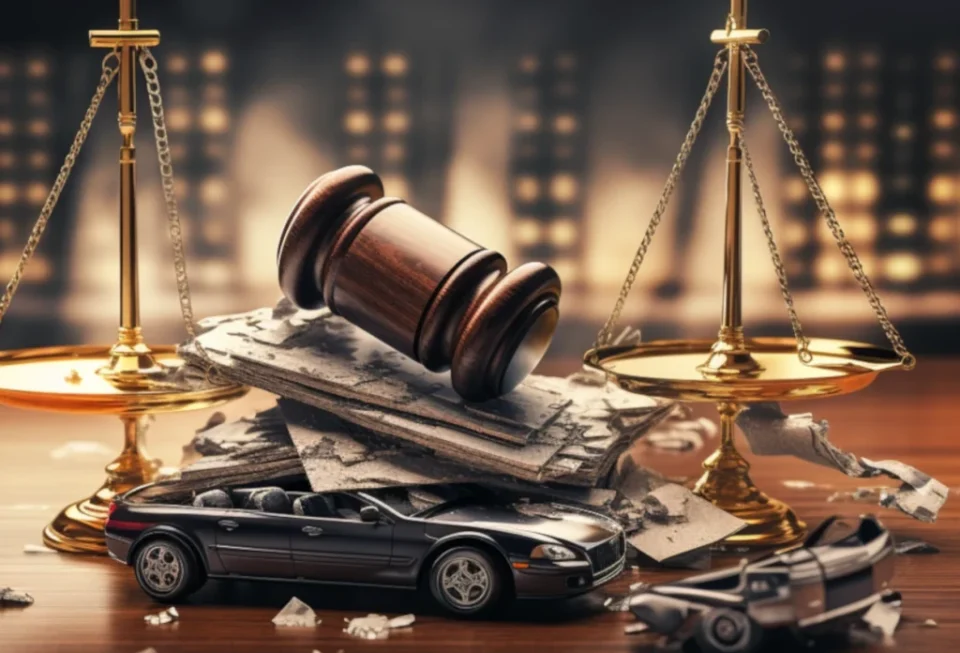Personal injury cases are a complex terrain of legalities, emotions, and misconceptions. Understanding the nuances of PI law is crucial for anyone navigating through the aftermath of an accident or injury. In this blog, we will share exclusive insight into the intricacies of the subject matter, shedding light on common myths and misconceptions that often cloud the learning path. Our goal is to help individuals make informed decisions about seeking the compensation they rightfully deserve.
Common Myths and Misconceptions
Myth 1: You Can Only Sue for Physical Injuries

In reality, the scope of personal injury law extends beyond bodily injuries. According to this article, emotional distress and mental health claims are legitimate grounds for seeking compensation. For instance, a traumatic incident can leave lasting psychological effects, and the law recognizes the right to pursue damages for these non-physical injuries.
Personal injury law acknowledges the impact of emotional distress and mental health issues stemming from an incident. Whether it is post-traumatic stress disorder (PTSD), anxiety, or depression, individuals have the right to seek compensation for the emotional toll.
Cases involving defamation, intentional infliction of emotional distress, or even workplace harassment fall under PI law, emphasizing that harm goes beyond physical wounds.
Myth 2: Cases Always Go to Court
Contrary to popular belief, not all personal injury cases are in a courtroom battle. Many cases are resolved through settlement options, negotiation, or alternative dispute resolution methods. Pursuing these avenues often has distinct benefits, including a faster resolution, reduced legal costs, and a more controlled outcome.
Settlements involve the parties reaching an agreement outside of court, typically with the assistance of their legal representatives. This expedites the process and allows for a tailored resolution that meets the specific needs of the parties involved.
Negotiation and alternative dispute resolution methods, such as mediation or arbitration, provide a more collaborative and less adversarial approach. A treatise from www.seattleu.edu explores negotiation quite effectively. Feel free to explore it.
Myth 3: If You’re Partially at Fault, You Can’t Sue

A prevalent misconception is that individuals with partial fault in an incident are barred from seeking compensation. PI law, however, operates under the principle of comparative negligence, allowing individuals to pursue claims even if they share some degree of responsibility for the accident.
In jurisdictions that follow comparative negligence principles, the compensation awarded is adjusted based on each party’s degree of fault. This means that even if you are partially at fault, you may still be entitled to proportionate compensation.
Consider a car accident where one driver ran a red light, but the other was speeding. Both may share responsibility, but the law recognizes that one party’s actions may have contributed more significantly to the incident.
Myth 4: All PI Lawyers Are the Same
It is a common misconception that any lawyer can handle a personal injury case. In reality, it is a specialized field, and choosing an attorney with expertise in this area can significantly impact the outcome of your case.
The cases involve intricate legal nuances and often require a deep understanding of medical concepts, insurance practices, and negotiation strategies. A lawyer specializing in PI law is equipped to navigate these complexities effectively.
When seeking legal representation, look for a Burbank CA personal injury lawyer with a proven track record in such cases. Check for certifications, memberships in relevant associations, and a substantial history of successful case outcomes.
Myth 5: You Can’t Afford a Personal Injury Lawyer

The belief that hiring a PI lawyer is financially out of reach for many is another common misconception. In reality, many attorneys operate on a contingency fee basis, making legal representation accessible to a broader range of individuals.
A contingency fee means that the attorney’s fees are contingent on the case’s successful outcome. If there is no recovery, the client does not pay legal fees. This arrangement aligns the interests of the client and the lawyer, as the latter only gets paid when they secure compensation for the client.
Contingency fee arrangements enhance access to justice by ensuring that individuals, regardless of their financial situation, can pursue a personal injury claim without the burden of upfront legal costs.
How to Pick the Right Law Partner
On their website, the American Museum of Tort Law mentions that choosing the right personal injury lawyer is critical to handling your case effectively and receiving fair compensation. Here are key factors to consider when selecting a law partner:
Assessing Expertise and Specialization
Personal injury law is a specialized field that requires in-depth knowledge of statutes, precedents, and evolving legal trends. Opting for a lawyer specifically focusing on personal injury cases increases the likelihood of a favorable outcome.
An attorney’s experience in handling cases similar to yours is invaluable. Inquire about their past cases, specifically those with comparable circumstances, and assess the outcomes to gauge their effectiveness.
Understanding Communication and Accessibility
Effective communication is paramount in any legal proceeding. A lawyer who can explain complex legal concepts clearly and understandably empowers you to make informed decisions about your case. Your lawyer should be responsive to your inquiries and keep you updated on the progress of your case.
Evaluating Track Record and Success Rates
A lawyer’s track record is a testament to their skill and proficiency. Look for information on past cases they have handled, including settlements and court verdicts. A consistent record of favorable outcomes is a positive indicator.
Considering Resources and Support Staff
Personal injury cases often involve extensive investigations, document preparation, and negotiations. A lawyer with a dedicated support team is better equipped to handle the workload efficiently, increasing the chances of a successful outcome.
Adequate resources, such as access to medical experts, accident reconstruction specialists, and investigators, enhance a lawyer’s ability to build a compelling case. Inquire about the firm’s resources and its commitment to thorough preparation.
Assessing Compatibility and Trustworthiness

Trust and compatibility with your lawyer are vital. A strong relationship fosters open communication and collaboration, leading to a more effective legal strategy.
Trust is the foundation of any successful attorney-client relationship. Choose a lawyer you feel comfortable with, who listens to your concerns, and whose guidance you can rely on throughout the legal process.
Understanding the truth behind common myths and misconceptions about personal injury law is the first step toward seeking justice and fair compensation. Personal injury cases are nuanced, and having the right legal partner can make all the difference.
Selecting the right personal injury lawyer involves carefully assessing expertise, communication skills, track record, resources, and the compatibility of the lawyer-client relationship. By making informed choices, individuals can navigate the complexities of personal injury law with a trusted legal advocate, increasing the likelihood of a favorable resolution.

